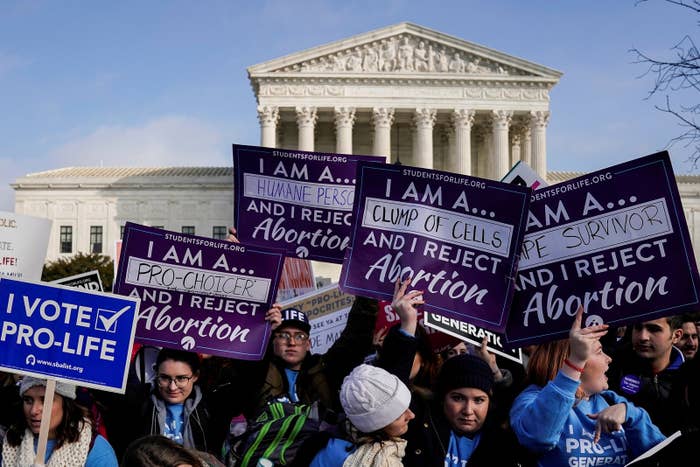
WASHINGTON — Government scientists must stop research that uses human fetal tissue, the Department of Health and Human Services announced Wednesday in a series of new restrictions.
The changes follow a monthslong agency review of medical research that involved fetal tissue that HHS announced in September.
The administration cast the restrictions as part of President Donald Trump’s agenda to restrict abortion rights and remove protections for reproductive rights. In recent months, Trump has pushed to end health care nondiscrimination protections for those who have had abortions, moved to allow health care workers with a moral objection to abortion to refuse to perform the procedure, and pulled US funding from international aid groups that promote or perform abortions.
“Promoting the dignity of human life from conception to natural death is one of the very top priorities of President Trump’s administration,” HHS said in a release Wednesday on the new fetal tissue restrictions.
Research projects using fetal tissue that are funded by the National Institutes of Health, but conducted outside the federal government, will continue to the end of their grant terms, according to HHS. As part of the changes, new funding for projects that use fetal tissue will require additional approval from an ethics review board. The agency also announced the end of a contract at the University of California, San Francisco, related to fetal tissue research.
Three active projects at the NIH, which funds $39 billion in biomedical research annually, will be affected by the new rules, an HHS spokesperson told BuzzFeed News. The spokesperson did not identify the research projects or indicate how much grant money was affected. The NIH referred questions to HHS.
This announcement ended “a 30-year partnership with the NIH,” UC San Francisco chancellor Sam Hawgood said in a statement to BuzzFeed News. “UCSF exercised appropriate oversight and complied with all state and federal laws. We believe this decision to be politically motivated, shortsighted and not based on sound science.”
Scientific and medical groups have warned that cutting access to fetal tissue could obstruct progress toward lifesaving medical advances.
A raft of public and private universities and professional medical groups sent a letter to Congress last year, arguing that fetal tissue research was necessary for the development of vaccines and the formulation of treatments for diseases such as rheumatoid arthritis, cystic fibrosis, and hemophilia.
“It is a clear indication that this administration values symbolic statements over research aimed at saving lives,” Alta Charo, a bioethics professor at the University of Wisconsin Law School, wrote to BuzzFeed News in an email Wednesday. “Indeed, in one of the greatest ironies, this tissue might be used for research on the Zika virus that can cause devastating birth defects, so a policy aimed at symbolically valuing fetal life may end up devaluing the lives of actual children.”
Doug Melton, president of the International Society for Stem Cell Research, said in a statement Wednesday that HHS's restrictions "have no scientific or ethical basis and will roll back decades of consensus in the US, delaying the development of new medical treatments.” The new rules would result in the US "ceding its role as the global leader in the development of cellular therapies and regenerative medicine.”
Anti-abortion advocates welcomed the news Wednesday, including the Susan B. Anthony List, which called the move a “major victory” and thanked President Donald Trump for his “decisive action.” March for Life also said in a statement that it “applauds the Administration for halting funding for research that requires aborted fetal organs and tissue.”
In the wake of the HHS audit last year, NIH labs stopped acquiring new fetal tissue. Science magazine reported in December that labs at the National Eye Institute (NEI) and the National Institute of Allergy and Infectious Diseases (NIAID), and at the National Cancer Institute, were affected by that suspension.
The political fight over fetal tissue research has reignited under the Trump administration. Congress last held major hearings on the issue in 2016, after an anti-abortion activist covertly taped Planned Parenthood doctors and employees of a cell tissue firm, and released heavily edited and misleading videos.
Charo said that the government required a similar ethics review decades ago for research involving human embryos: “The [ethics advisory board] review was required but no one was appointed to the Board.”
UPDATE
This article was updated to include a statement from the International Society for Stem Cell Research.
UPDATE
This article was updated to include a statement from UC San Francisco.


